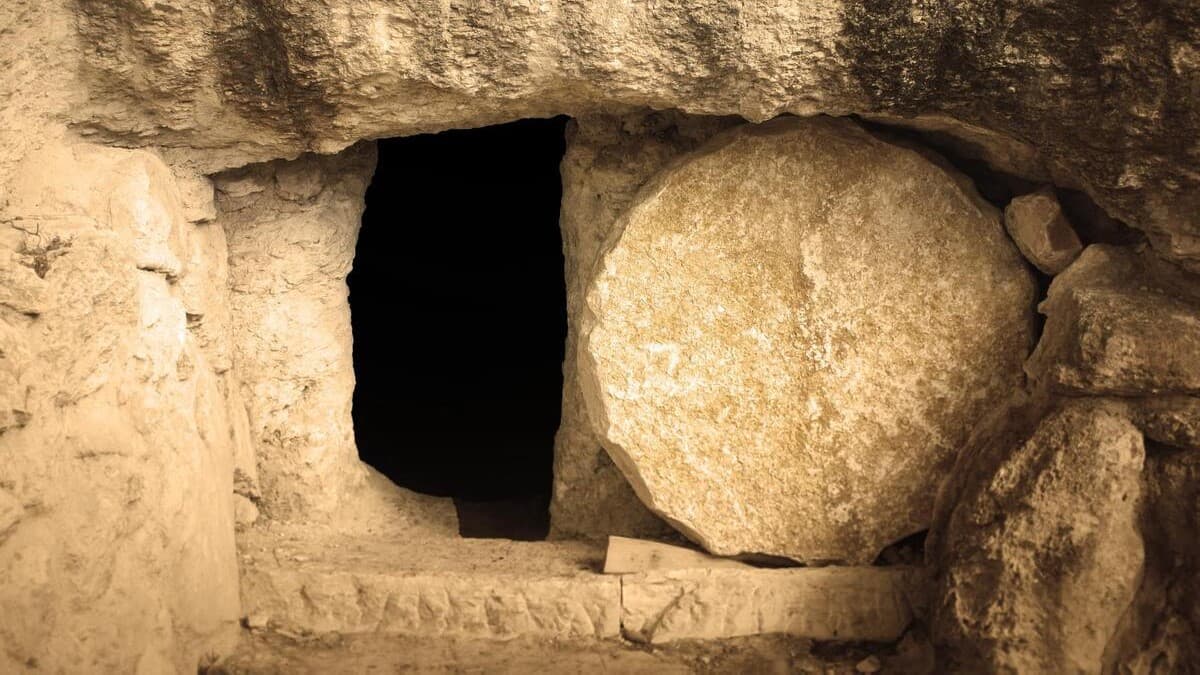
The Evidence for the Resurrection of Jesus
There are more reliable facts about this event than most people would suppose, and the clarity of the conclusion may shock you.
5 min read
If you do not believe that miracles are possible, then I suggest you read Proofs of God's Existence and Supernatural Events, where you will find links to more thorough articles and videos for further investigation. If you understand that miracles are possible, then consider this: we are clearly like God in some ways that no other creature is. We are special. It should then come as no surprise that God, who sustains everything, cares for us and has an ultimate plan for us. This is the culmination of that plan.
Prophecies of the Messiah
If you believe the Old Testament (see Evidence for the Old Testament), you could easily see by reading its many prophecies that Jesus is the predicted Son of God, God with us. However, even if you don't, the prophecies being so clearly and uniquely fulfilled by Jesus could change your mind. Let us look at a powerful example.
Psalm 22 is an astounding testimony to God being at work. For instance, before crucifixion was invented, the character in the Psalm says, “They pierce my hands and my feet. All my bones are on display; people stare and gloat over me. They divide my clothes among them and cast lots for my garment.” These are unusually specific details about what Roman crucifixions involved, and there are more. The gentiles (non-Jews) are also predicted to turn to the God of Israel because of what was done through the Messiah—because of this death and His being rescued from it. See below.
Watch a video on the topic here.
The Conversion of Non-Jews
The conversion of the gentiles (non-Jews) to the God of Israel, and the scale at which this occurred, is monumental evidence for Jesus. How likely is it that the death of one man would turn much of the world to faith in the God of a small race, unless the true God was involved? Has another religion done this? (Islam spread by the sword and rides the coattails of Christianity by claiming the same God.)
This mass conversion was prophesied about repeatedly in the Old Testament (e.g., Psalm 22, Isaiah 49:6, and Isaiah 60:3). Has any other religion made such a bold prediction that has come true?
“It is too small a thing for you to be my servant to restore the tribes of Jacob and bring back those of Israel I have kept. I will also make you a light for the Gentiles, that my salvation may reach to the ends of the earth.”
Isaiah 49:6
In addition, those who spread Christianity first, the apostles, gathered many followers, and they say they did so in large part by performing miracles to prove they were of God. Were they clever charlatans, or were they performing true signs? I think that reading what they wrote in the New Testament clearly shows they were honest men, nothing like the frauds who are common today.
Jesus' Other Miracles
Even Jews commonly admit that Jesus worked miracles, who consider Christ an enemy. They simply claim that His miracles were done through demonic power. (Both religious Jewish teachings and the great philosopher Josephus mentioned Jesus's miracle working.) This is significant because if it was widely acknowledged that the man performed miracles, why should it be considered unlikely that He was raised from the dead?
The Jewish Excuse
The Jews to this day claim that the body was stolen. Clearly, the body was gone either way, or it would have been paraded around. This tacitly admits that either He was raised from the dead, or His disciples stole His body and lied, knowing they would be persecuted and perhaps killed, instead of just walking away.
Hallucination Theory
The hallucination theory seems to be the only one with any traction at the moment: that is, that Jesus's followers collectively hallucinated, and so believed He had risen when He had not. However, according to the believers, Jesus appeared to over 500 of them, besides the apostles and two others, including many of them at once. A shared hallucination, like a mass shared dream, would be almost just as much of a miracle as the resurrection itself! Therefore, this theory falls short.
The Minimal Facts Case
There are several historical facts that can be strongly attested to and which most scholars also agree on in regard to the resurrection of Jesus. Gary Habermas in particular did an enormous survey of scholarship and has provided arguments for the legitimacy of these facts, which you can see his brief explanation of here or read the book called The Case for the Resurrection of Jesus (Gary R. Habermas and Michael R. Licona). Some scholars include more or less facts, depending on how strict they wish to be with their criteria. Some are below.
The Agreed Upon Historical Facts
- Jesus lived on Earth.
- He was killed by crucifixion.
- His tomb was empty three days later.
- Jesus's followers were convinced they saw the risen Jesus.
- His followers were willing to suffer and die for their belief that Jesus was proven the Son of God by the resurrection.
- The unbelieving brother of Jesus then believed he saw the risen Jesus.
- Saul, who was imprisoning and voting for the execution of Christians, then believed he saw the risen Jesus.
The Argument
The best explanation for these facts is that Jesus really rose from the dead. Why else would a notable unbeliever (His brother) and an enemy of the church (Saul, or Paul) have both converted and claimed to have seen the risen Lord? Why would the disciples proclaim a recently killed 'criminal' as Lord, to their own peril, if they knew it was a lie?